Related Research Articles
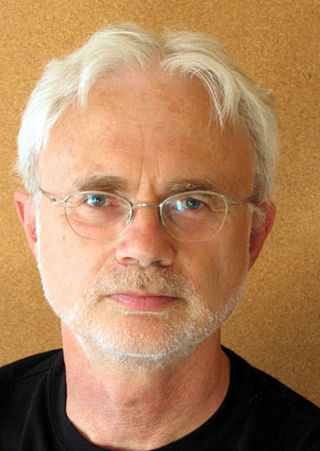
John Coolidge Adams is an American composer and conductor whose music is rooted in minimalism. Among the most regularly performed composers of contemporary classical music, he is particularly noted for his operas, which are often centered around recent historical events. Apart from opera, his oeuvre includes orchestral, concertante, vocal, choral, chamber, electroacoustic and piano music.
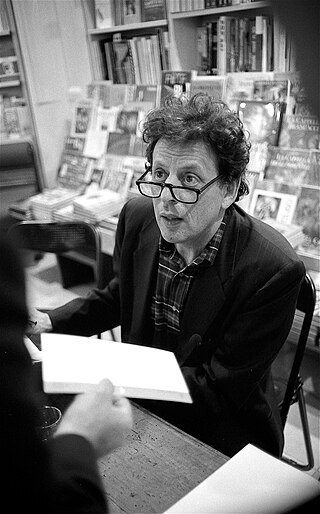
Philip Glass is an American composer and pianist. He is widely regarded as one of the most influential composers of the late 20th century. Glass's work has been associated with minimalism, being built up from repetitive phrases and shifting layers. Glass describes himself as a composer of "music with repetitive structures", which he has helped evolve stylistically.

Michael Laurence Nyman, CBE is an English composer, pianist, librettist, musicologist, and filmmaker. He is known for numerous film scores, and his multi-platinum soundtrack album to Jane Campion's The Piano. He has written a number of operas, including The Man Who Mistook His Wife for a Hat; Letters, Riddles and Writs; Noises, Sounds & Sweet Airs; Facing Goya; Man and Boy: Dada; Love Counts; and Sparkie: Cage and Beyond. He has written six concerti, five string quartets, and many other chamber works, many for his Michael Nyman Band. He is also a performing pianist. Nyman prefers to write opera over other forms of music.

Einstein on the Beach is an opera in four acts composed by Philip Glass and directed by theatrical producer Robert Wilson, who also collaborated with Glass on the work's libretto. The opera eschews traditional narrative in favor of a formalist approach based on structured spaces laid out by Wilson in a series of storyboards which are framed and connected by five "knee plays" or intermezzos. The music was written "in the spring, summer and fall of 1975." Glass recounts the collaborative process: "I put [Wilson’s notebook of sketches] on the piano and composed each section like a portrait of the drawing before me. The score was begun in the spring of 1975 and completed by the following November, and those drawings were before me all the time." The premiere took place on July 25, 1976, at the Théâtre Municipal in Avignon, France, as part of the Avignon Festival. The opera contains writings by Christopher Knowles, Samuel M. Johnson and Lucinda Childs. It is Glass's first and longest opera score, taking approximately five hours in full performance without intermission; given the length, the audience is permitted to enter and leave as desired.
4′33″ is a three-movement composition by American experimental composer John Cage. It was composed in 1952, for any instrument or combination of instruments, and the score instructs performers not to play their instruments during the entire duration of the piece throughout the three movements. The piece consists of the sounds of the environment that the listeners hear while it is performed, although it is commonly perceived as "four minutes thirty-three seconds of silence". The title of the piece refers to the total length in minutes and seconds of a given performance, 4′33″ being the total length of the first public performance.
"Nessun dorma" is an aria from the final act of Giacomo Puccini's opera Turandot and one of the best-known tenor arias in all opera. It is sung by Calaf, il principe ignoto, who falls in love at first sight with the beautiful but cold Princess Turandot. Any man who wishes to wed Turandot must first answer her three riddles; if he fails, he will be beheaded. In the aria, Calaf expresses his triumphant assurance that he will win the princess.
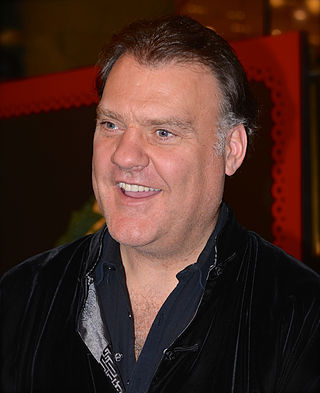
Sir Bryn Terfel Jones, is a Welsh bass-baritone opera and concert singer. Terfel was initially associated with the roles of Mozart, particularly Figaro, Leporello and Don Giovanni, but has subsequently shifted his attention to heavier roles, especially those by Puccini and Wagner.

Peter Grimes, Op. 33, is an opera in three acts by Benjamin Britten, with a libretto by Montagu Slater based on the section "Peter Grimes", in George Crabbe's long narrative poem The Borough. The "borough" of the opera is a fictional small town that bears some resemblance to Crabbe's – and later Britten's – home of Aldeburgh, Suffolk, on England's east coast.

Ariadne auf Naxos, Op. 60, is a 1912 opera by Richard Strauss with a German libretto by Hugo von Hofmannsthal. The opera's unusual combination of elements of low commedia dell'arte with those of high opera seria points up one of the work's principal themes: the competition between high and low art for the public's attention.

"Frühlingsstimmen", Op. 410 is an orchestral waltz, with optional solo soprano voice, written in 1882 by Johann Strauss II.
"Ombra mai fu", also known as "Largo from Xerxes" or "Handel's Largo", is the opening aria from the 1738 opera Serse by George Frideric Handel.

Orlando is an opera seria in three acts by George Frideric Handel written for the King's Theatre in London in 1733. The Italian libretto was adapted from Carlo Sigismondo Capece's L'Orlando after Ludovico Ariosto's Orlando Furioso, which was also the source of Handel's operas Alcina and Ariodante. More an artistic than a popular success at its first performances, Orlando is today recognised as a masterpiece.
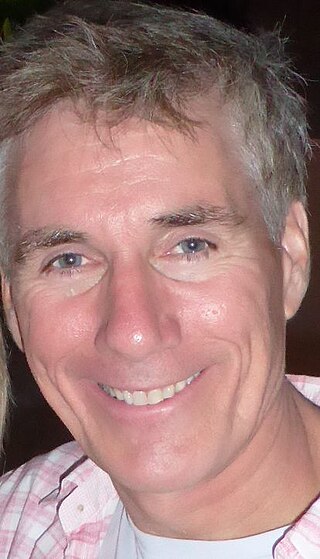
David Hobson is an Australian opera tenor and composer.
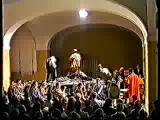
Der Kaiser von Atlantis oder Die Tod-Verweigerung is a one-act opera by Viktor Ullmann with a libretto by Peter Kien. They collaborated on the work while interned in the Nazi concentration camp of Theresienstadt (Terezín) around 1943. The Nazis did not allow it to be performed there.

The Alto Rhapsody, Op. 53, is a composition for contralto, male chorus, and orchestra by Johannes Brahms, a setting of verses from Johann Wolfgang von Goethe's Harzreise im Winter. It was written in 1869, as a wedding gift for Robert and Clara Schumann's daughter, Julie. Brahms scholars have long speculated that the composer may have had romantic feelings for Julie, which he may have integrated into the text and music of the Alto Rhapsody. The text, with its metaphysical portrayal of a misanthropic soul who is urged to find spiritual sustenance and throw off the shackles of his suffering, has powerful parallels in Brahms's life and character.

Peter Reynolds was a Welsh composer known for founding PM Music Ensemble. In addition, he was recognised by Guinness World Records as having written with writer Simon Rees the shortest opera on Earth, Sands of Time; a three-minute and thirty-four second long piece. He died on 11 October 2016 at his home in Cardiff.
"I Dreamt I Dwelt in Marble Halls", or "The Gipsy Girl's Dream", is a popular aria from The Bohemian Girl, an 1843 opera by Michael William Balfe, with lyrics by Alfred Bunn. It is sung in the opera by the character Arline, who is in love with Thaddeus, a Polish nobleman and political exile.

Blodwen is an opera in three acts composed in 1878 by Dr Joseph Parry to a libretto by Richard Davies. It was the first opera written in the Welsh language.
Time Structured Mapping (TSM) is a score based system created and used by the composer Pete M Wyer. It uses the bar-lines found in conventional musical scores to indicate durational periods during which performers, who may include actors, singers, dancers, poets as well as musicians, are given instructions, which may include conventional musical scoring or improvisational guidelines. The system allows large and sometimes disparate groups to improvise together coherently, or to combine improvisation with scored music or with other media. It has been used to get orchestras, including the Orchestra of the Swan, to improvise effectively and in educational projects, to combine student musicians with professionals, such as with Welsh National Opera and to combine other media such as dance and poetry with musical improvisation in a structured form, such as with Miro Dance Theatre, Philadelphia.

La Délivrance de Thésée is the final opera in a trilogy of "opéras minute", composed by the French composer Darius Milhaud in 1927 to a libretto by Henri Hoppenot. The first two works in the series are L'Enlèvement d'Europe and L'abandon d'Ariane, and the running time for the complete trilogy is approximated at 28 minutes. La Délivrance is the shortest of the three operas, with a running time recorded as 7 minutes 27 seconds, and when written was generally regarded as the world's shortest opera.
References
- 1 2 3 Lister, David (14 March 1993). "Four-minute opera cracks the record". The Independent. Retrieved 7 May 2019.
- 1 2 "The Sand of Time: an opera in four minutes". SoundCloud. Retrieved 8 May 2019.
- 1 2 3 "Obituary. Peter Reynolds 1958 – 2016". The Times. 2 November 2016. Retrieved 7 May 2019.
- 1 2 3 Hickling, Alfred (7 April 2004). "Is that it?". The Guardian. Retrieved 7 May 2019.